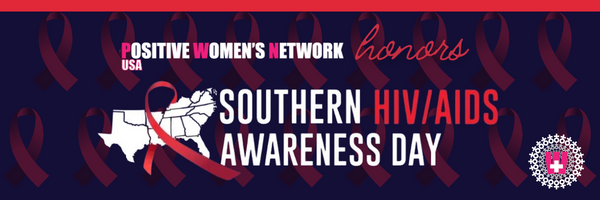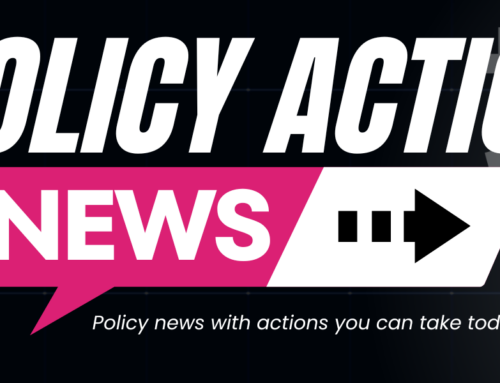
August 20, 2022
(Was this email forwarded to you? Sign up to receive updates from Positive Women’s Network!)
Positive Women’s Network – USA (PWN) commemorates the annual Southern HIV/AIDS Awareness Day (SHAAD). Launched by the Southern AIDS Coalition in 2019, SHAAD is a day set aside for individuals all over the nation to join a movement to raise awareness, erase HIV-related stigma and discrimination, and advocate for new and necessary resources and solutions to improve the lives of people living with HIV in the South.
Black women and women of color carry the burden of HIV diagnoses in the U.S., especially in the South; approximately half of all US WTLHIV (women and transgender people living with HIV), and a majority of PWN’s members, reside in the South. This is not a coincidence. The South continues to bear the brunt of ongoing and violent racialized capitalism, mass incarceration, and anti-trans and anti-reproductive choice legislation.
PWN is committed to calling out the unique forms of violence that Southerners living with HIV face. It is for this reason that in partnership with the Williams Institute and the Health Not Prisons Collective, this week we hosted a webinar exploring the disparate impact that HIV criminalization has on Black women in Tennessee. (You can find the recording here in case you missed it!)
But we also know, wherever we see oppression, there is also a strong culture of resistance and resilience. That’s what we see in the South. Let’s all be reminded of the resiliency of Fannie Lou Hamer, John Lewis. Mama Dee Dee Chamblee, Dazon Dixon Diallo, Deon Haywood, Marsha Jones and so many more who remind us of the beautiful, rich legacy, culture, and history of the South every day.
PWN believes it is essential to invest in building long-term power in these communities most impacted by the HIV epidemic, marginalized within the response, and uniquely situated at the intersection of oppressions based on race, class, gender, and gender identity. Cis and trans women of color living in the South bear intersecting burdens; they are also closest to the solutions.
Venita Ray, our co-executive director, has chosen to live in the South and loves the hospitality and rich culture and history the South has to offer. As a Black woman living with HIV, she is also committed to ensuring that the South receives its equitable share of resources and attention. “I am committed to being here for the long haul,” says Venita.
Through regional chapters in Alabama, Louisiana, South Carolina, and Texas, PWN members are organizing and mobilizing their communities to protect and expand services and funding for programs that benefit people living with and vulnerable to HIV, while fighting for reproductive justice, voting rights, and trans liberation.
In 2021, PWN launched the Reproductive Justice for Black Lives (PWN RJ4BL) Ambassador Program with our Alabama and Louisiana chapters. RJ4BL Ambassadors lead using a reproductive justice framework and analysis in their HIV advocacy. So in June, when the U.S. Supreme Court struck down the constitutional right to abortion, PWN was prepared to take up the fight.
Reproductive justice is central to our well-being and humanity, yet US federal HIV strategies rarely address the sexual and reproductive health and rights of people already living with HIV. Lisa Johnson-Lett, RJ4BL Ambassador and Alabama resident, wrote a powerful blog about the implications of Roe v. Wade being overturned, realizing abortion is now completely banned in her state. “As Alabamians we need to know that other fundamental rights, including the right to contraception and marriage equality, may be up for future discussion. These potential bans of our human rights are all a reproductive justice issue,” she said. To dive deeper into the intersections of abortion criminalization and HIV criminalization, check out a recent webinar that PWN co-hosted in partnership with the Health Not Prisons Collective entitled Hands Off My Black Body: Decriminalizing HIV & Abortion.
Our work in the South is heating up–now more important than ever. In addition to Alabama and Louisiana’s excellent leadership in the Reproductive Justice for Black Lives program, PWN’s Southern Women’s Advocacy Response Mobilization (SWARM) is developing strategies to minimize the harmful effects of criminalizing abortion in the region. PWN’s Texas Strike Force and Houston chapter are organizing voters and preparing for legislative session.
These fierce Black women, transgender people, and nonbinary folks living with HIV in the South are taking on huge issues that are consequential for the whole country. PWN is committed to resourcing the organizing efforts of WTLHIV in the South because when our Southern members are free, we will all be free.



